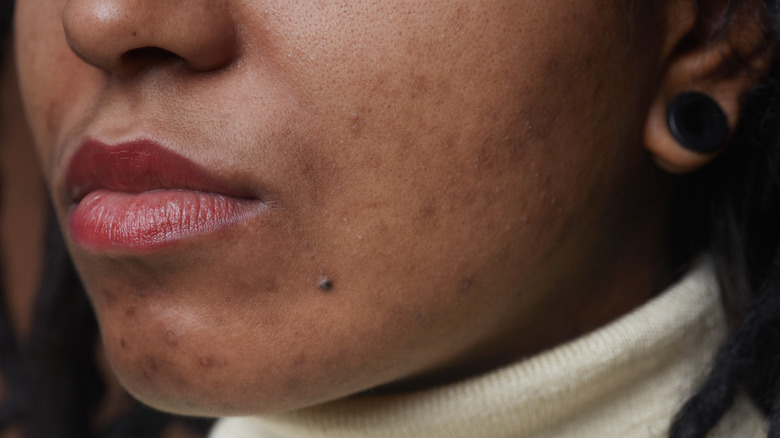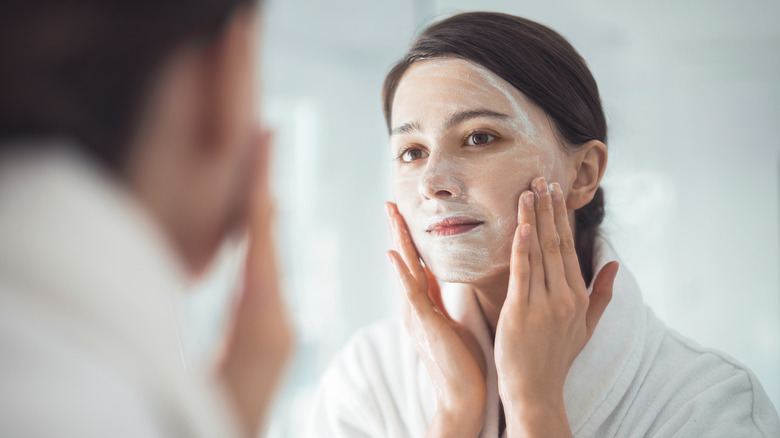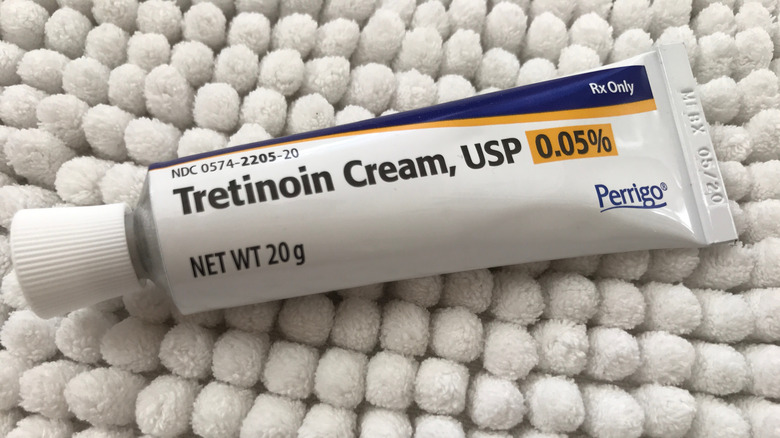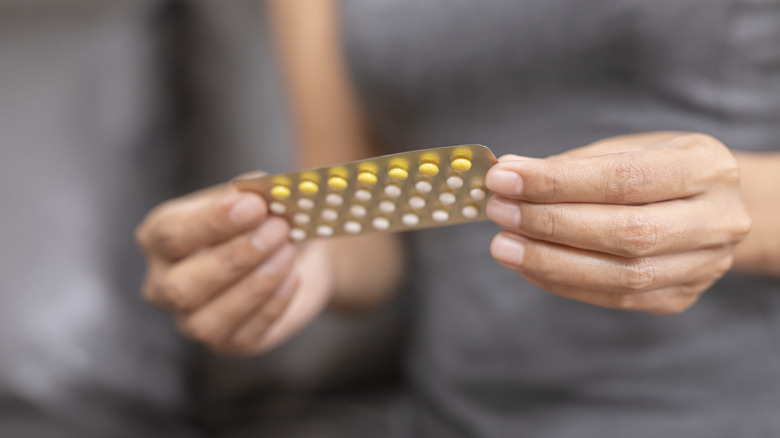Acne is usually associated with teenage life, but it can affect anyone.
Men can experience these issues, too.
Millions of women are struggling with hormonal acne during menopause.

As the scientists note,adult female acneis often due to hormonal fluctuations.
Genetics, stress, diet, and cigarette smoking may play a role, too.
Your diet and beauty routine may have an impact as well.

Treatment options depend on the cause and severity of acne breakouts.
Over-the-counter cleansers and supplements may help, but they don’t work for everyone.
Home remedies are rarely effective.

Therefore, it may benefit acne-prone skin.
Ideally, choose a facial cleanser with alpha or beta hydroxy acids.
Topical salicylic acid, for example, may reduce inflammation and redness while exfoliating your skin, notes theU.S.

National Library of Medicine.
When used regularly, it may help treat acne and improve your complexion.
Alpha-hydroxy agents (AHAs) can help, too.
Moreover, they offset some of the effects of ultraviolet (UV) radiation, leading to younger-looking skin.
Thanks to their mild peeling effect, AHAs may reduce acne and boost skin health.
As a general rule, it’s best to avoid harsh facial cleansers.
Dermatologist S. Manjula Jegasothy recommends using either salicylic/glycolic acid or probiotic cleansers (viaYahoo!
She explains that topical probiotics restore the skin’s pH balance, protecting against acne-causing bacteria.
These treatment options are suitable for mild acne.
Moderate and severe cases require a different approach.
Unfortunately, topical retinoids are not suitable for all skin types and may not be safe for pregnant women.
These compounds may also cause irritation, so they’re not thebest choice for sensitive skin.
However, there are a couple of things you might do to minimize tolerability issues.
For starters,use a topical retinoidevery other day during the first two to four weeks of treatment.
Leave it on for 30 to 60 minutes and then wash it off (per Dermatology and Therapy).
Note that it’s normal to experience some irritation during the first two weeks of treatment.
Should you try hormonal therapy for severe acne?
Some doctors prescribe oral contraceptives and other types of hormonal therapy for severe acne.
Hormone replacement therapy, or HRT, isn’t safer either.
Rodney says that it may actually worsen acne due to progestin, a synthetic form of progesterone.
Dealing with hormonal acneduring menopause can be frustrating, but it’s not worth risking your health.
Discuss your options with a dermatologist and don’t rush into making a decision.
As Rodney points out, retinoids and other traditional acne-fighting ingredients can make quite a difference.